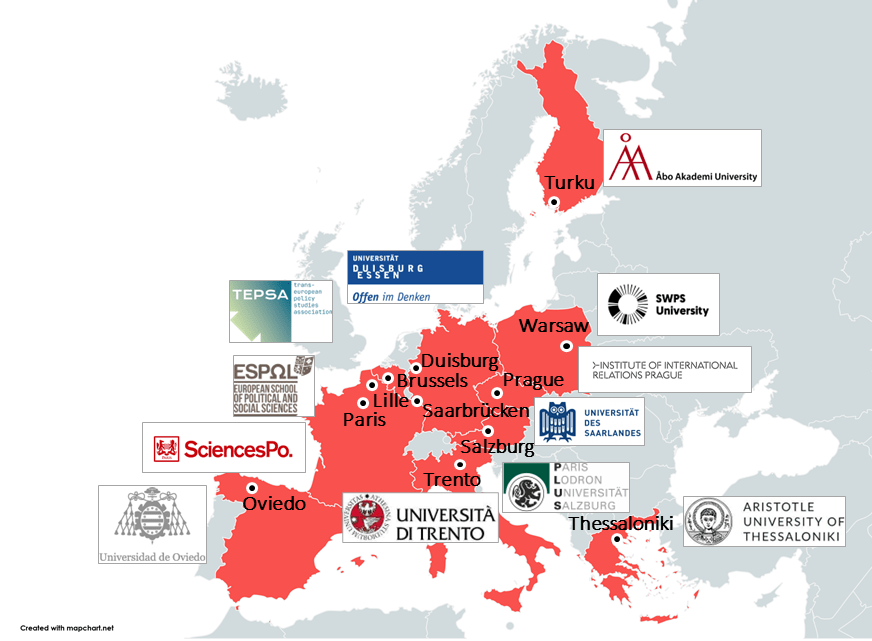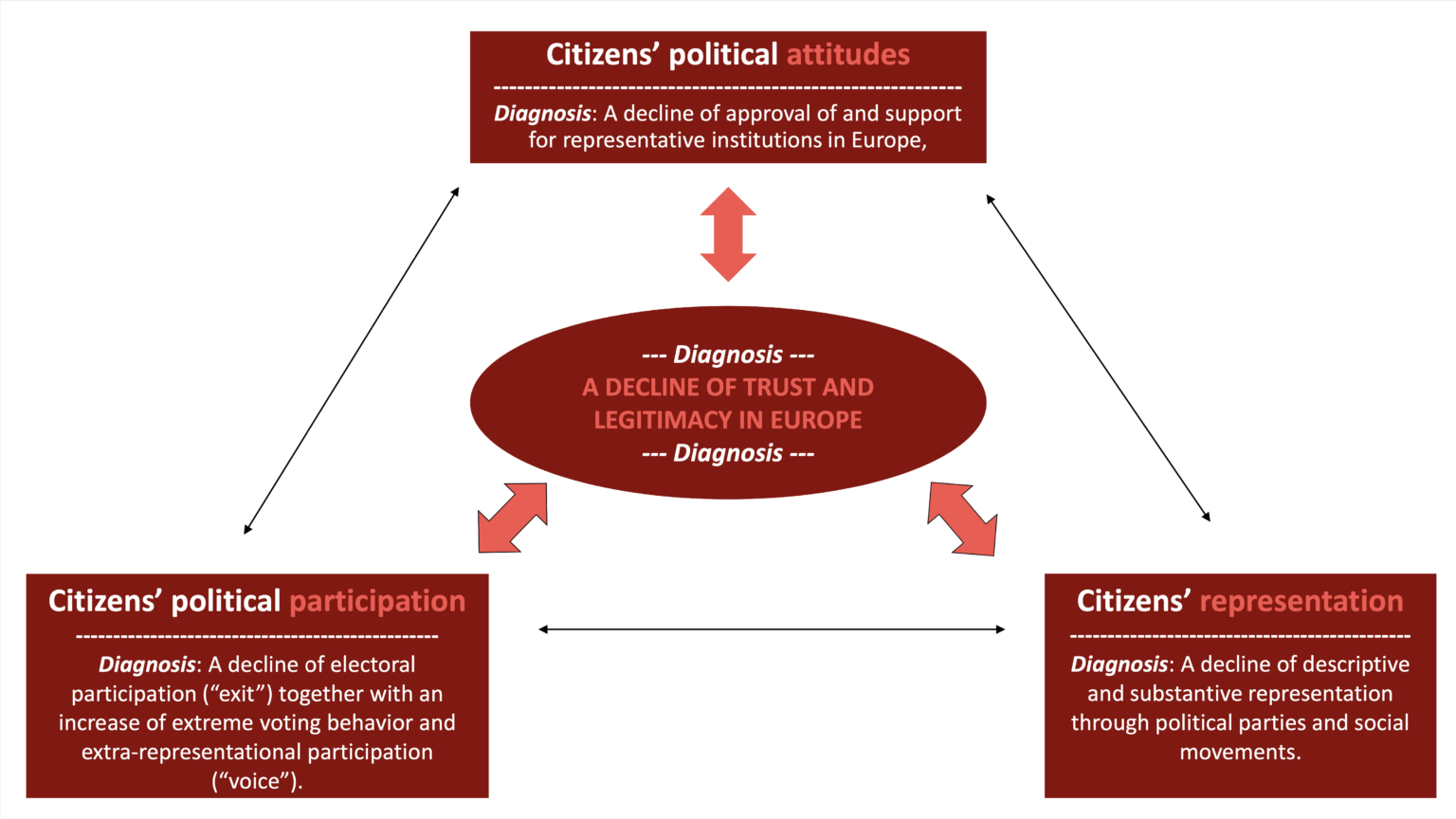Project duration |
ActEU
Towards a new era of representative democracy
Activating European Citizens' Trust in Times of Crises and Polarization
How can we conceptualize and empirically measure political trust and legitimacy beyond the usual survey question “How much trust do you have in the parliament?”? Does the multi-level nature of European representative democracies require an identical level of citizen support at the regional, national and EU level? How is social polarization on key policy issues of our times –immigration, climate change, and gender inequality– challenging political trust in and legitimacy of democratic political systems? And what can policymakers and civil society do to master these challenges?
ActEU aims at findings answers to these questions pursuing two overarching goals:
First, in phase 1, we map and investigate persistent problems of declining trust, legitimacy and representation in Europe with a particular attention to the polarization of societies and the EU´s multi-level structure. Providing an innovative conceptual framework focusing on political attitudes, behavior and representation across Europe, we establish an original empirical infrastructure based on an innovative combination of methods and newly collected quantitative and qualitative empirical data (focus groups, experimental surveys, web scraping). Knowledge gained from phase 1 will flow directly into the development of a toolbox of remedial actions characterizing phase 2, which will craft tailor-made toolkits for political and civil society actors, school teachers and university lecturers to deal with issues of declining political trust in representative democracies in flux and counteract a further decrease.
We develop context-sensitive solutions for all polity levels and type of polarizing policy field (migration, environment, gender). Finally, we deploy a differentiated and innovative communication and dissemination strategy –including educational cartoons– to maximize ActEU´s scientific, policy and societal impact in activating European citizens’ trust and working towards a new era of representative democracy.


